By Guy Lodge
According To The variety There’s a thin, squiggly tattoo running down the forearm of diligent hospital nurse Floria, always visible past the short sleeves of her royal-blue scrubs, but hard to really get a look at, since her hands are constantly in motion, doggedly busy. Occasionally, as we follow her through the exhausting nighttime rounds that make up “Late Shift,” we catch a glimpse of the ink and wonder what it is, what it means, what it says of this woman’s life outside long hours of caring for strangers. Perhaps even Floria, bleary after hours on her feet, sometimes spots it and is reminded of who she is. Petra Volpe‘s pacy, empathetic workplace drama ostensibly shows us only its protagonist’s professional persona, though that sometimes cracks and parts to reveal a fallible human in need of some care herself.
Floria is played by Leonie Benesch, the German actor with the clear, direct gaze and straight, taut stance who recently starred as the embattled educator in “The Teachers’ Lounge” and the cool-headed translator in “September 5.” Her appearance in “Late Shift” suggests she’s become a go-to thesp for roles that pit roiling human disorder against a veneer of brisk professional capability. Volpe’s script, like any hospital floor, is stacked with various disparate narrative matters of literal life and death, but it’s Benesch’s presence that gives the film much of its tension, as we wonder at what point her character’s brittle efficiency is going to snap. This gripping, accessible and easily sellable Swiss-German production should also benefit commercially from the star’s rising profile, following its Berlinale gala premiere. Structurally and thematically, there’s nothing here to surprise any viewers acquainted with the classic hospital-drama format, but the crisp, swift execution makes it effective just the same. With its multiple braided plotlines and single-night timeline, “Late Shift” could as easily be the extended pilot for a Euro spin on “ER,” engrossing and emotive enough that you’d tune in for another episode. For Volpe, the Swiss-Italian filmmaker hitherto best known for 2017’s feelgood feminist comedy “The Divine Order,” it’s perhaps the slickest example yet of her mainstream but character-oriented storytelling sensibility — and a solid calling card for projects farther afield, should she feel so inclined.
The film’s opening shot is witty and unexpected: rack upon rack of identical doctors’ and nurses’ smocks, traveling steadily through the industrial laundry process, alluding to further layers of weary human labor that keep the public healthcare system running. In a sterile locker room, Floria puts on one such garment as she readies for her shift on the surgical ward of a major Zurich hospital, exchanging small talk with a colleague, and donning a box-fresh pair of sneakers that — spoiler alert — will look beat to hell in 12 hours’ time. The late shift is strenuous at the best of times, with understaffing a default state. Tonight, a key colleague is absent, and the job facing Floria goes from challenging to unmanageable.
Among the 26 patients requiring her attention are Mr. Leu (Urs Bihler), an elderly man anxiously awaiting a cancer diagnosis from a doctor too busy to check in; Mrs. Bilgin (Eva Fredholm), a terminally ill woman whose three fretful adult sons are more of a burden on Floria’s time; Mrs. Morina (Lale Yavas), a cancer-stricken young mother debating whether or not to continue treatment; Mr. Song (Jeremia Chung), whose particular severe medication allergy is easily overlooked in the rush of rounds; and Mr. Severin (Jürg Plüss), a wealthy, haughty private patient who believes he pays for his herbal tea orders to be the staff’s top priority. Atop all this, Floria is charged with supervising nervous, error-prone student nurse Amelie (Selma) — tempers fray as precious time runs out.
As with his quick, lithe cutting of “September 5” last year, editor Hansjörg Weissbrich keeps all these strands (and several more besides) afloat and in touch with each other, as the film’s rhythm conveys the breathless, multi-tasking momentum of a high-stress, high-stakes work environment. High emotion, too, is delivered in short doses, rarely affording time for things to get maudlin, though the script errs on that front here and there — while a prominent, climactic use of the ANOHNI track “Hope There’s Someone” on the soundtrack is too bluntly literal by half. Indeed, the film’s original German title (“Heldin,” translating as “heroine”) feels unnecessary — telling us what is already vividly shown. In its cool, propulsive procedural tracking of ward activity, “Late Shift” quite sufficiently makes its point regarding the monumental challenge and value of Floria’s work, and that of thousands like her.



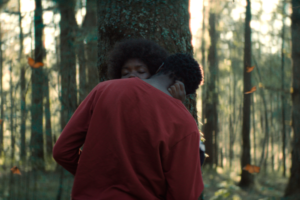
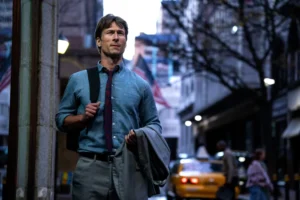
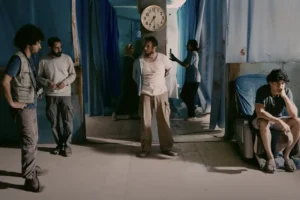


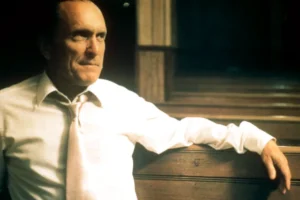

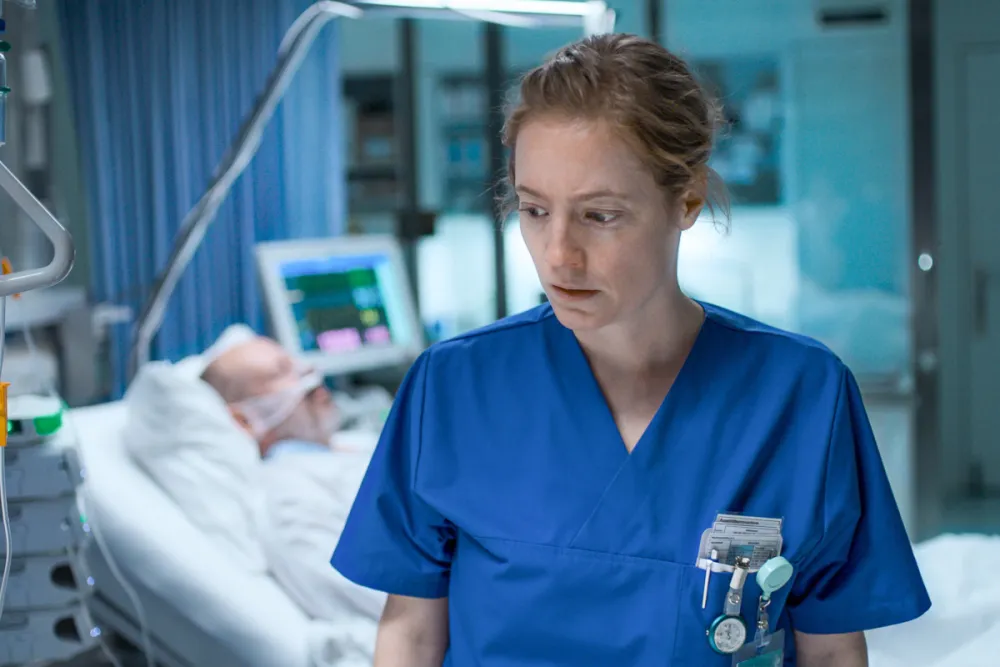





+ There are no comments
Add yours